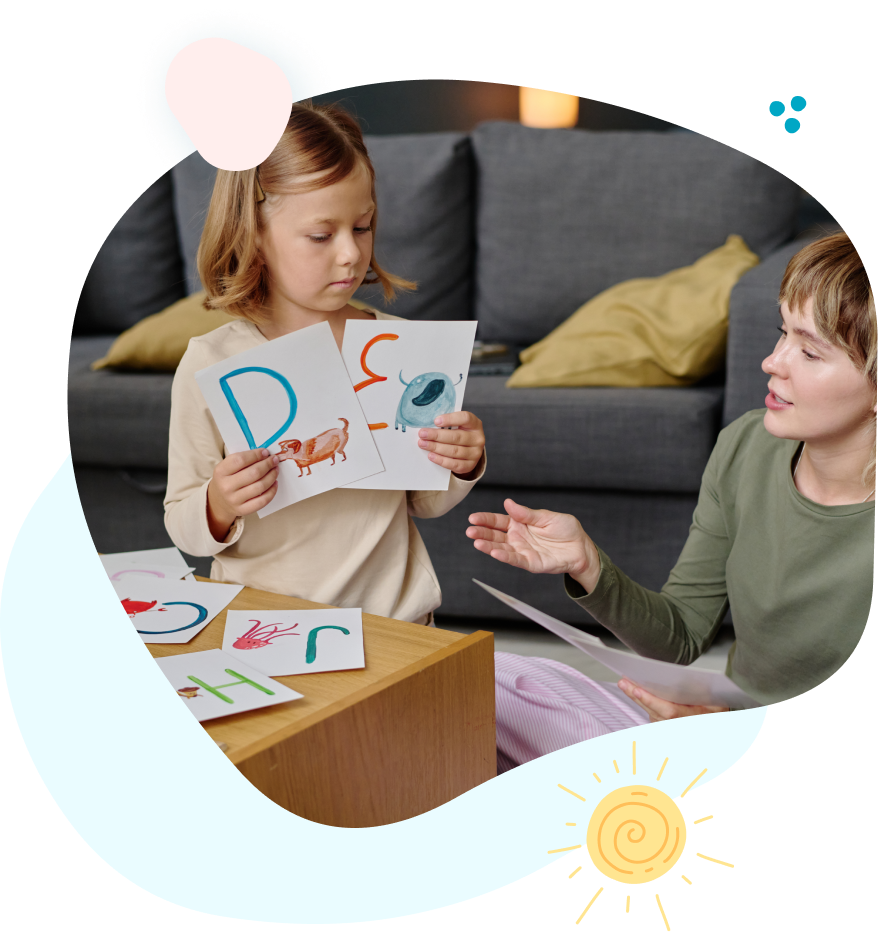Your Clinic
SET A LOCATION
Your Clinic
SET A LOCATION
Speech articulation disorders occur when a child has difficulty producing speech sounds correctly. These issues can make communication challenging, leading to frustration and affecting social interactions. Common articulation problems include substituting one sound for another (e.g., "wabbit" instead of "rabbit") or omitting sounds entirely.
Articulation disorders are distinct from language disorders, which involve difficulties in understanding or using language. Early intervention is crucial for preventing long-term challenges in communication and academic performance.
Difficulty pronouncing certain sounds (e.g., “r,” “s,” “l”).
Omitting or adding sounds in words.
Struggles with being understood by peers or adults.
Speech development lagging behind age-appropriate milestones.
Articulation issues can result from various factors, including:
Developmental delays.
Hearing impairments.
Physical abnormalities like cleft palate.
Neurological conditions such as apraxia.
Understanding the root cause helps speech-language pathologists (SLPs) create a tailored therapy plan.
Speech therapy (SLP) provides a structured, supportive environment where children learn to improve their speech clarity. Here’s how it works:
An SLP evaluates the child’s specific challenges through assessments and listening to their speech patterns.
Therapists set achievable goals, such as mastering specific sounds or improving overall intelligibility.
Therapy sessions often involve games, storytelling, and repetition exercises to make learning fun and engaging.
Parents receive guidance on reinforcing therapy techniques at home, creating consistency and speeding progress.
By enhancing communication skills, children gain confidence in social and academic settings.

Boosts self-esteem by improving communication.
Prevents academic delays caused by misunderstood speech.
Encourages positive interactions with peers and adults.
If you notice your child struggling with speech clarity or being frequently misunderstood, consult a speech-language pathologist. Early diagnosis and therapy yield the best outcomes.
Some mild articulation issues may improve with time, but persistent problems often require professional intervention.
The duration varies depending on the severity of the disorder and the child’s engagement in therapy.
Coverage varies by provider. Check with your insurance company to understand your plan’s benefits.
Speech articulation disorders can affect a child’s confidence and ability to connect with others. However, with the right speech therapy (SLP) approach, children can overcome these challenges and unlock their full communication potential.
Looking for expert speech therapy (SLP)? Contact us today to schedule an assessment and take the first step toward clearer, more confident speech for your child!
We empower children, families, and the community to learn, grow, and celebrate every child's unique abilities.
Quick Links
Contact Details
Phone: 561-376-2573 | 561-918-0190
Fax: 561-218-4939
VIP Concierge: 561-717-1764
Clinic Locations
All Rights Reserved | Progressive Pediatric Therapy, Inc. | Privacy Policy | Terms of Service
Site by Spearlance